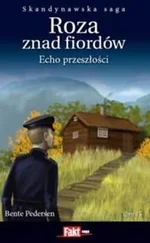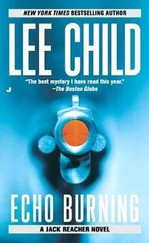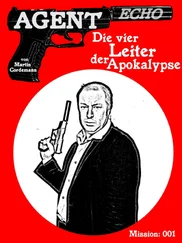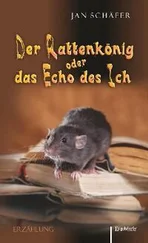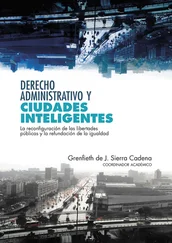It’s said that human beings have no memory for pain. I think it might be similarly true that we have no memory for fear. My fear of the Dark Echo had become remote from me by the time we embarked upon our transatlantic voyage. It had been to do with the winter, in my mind. And it was the summer by the time we finally cast off and left land behind. It was the time in the world of light and warmth. There had been signs still that things were not altogether right with the boat and with our ambitions aboard her. There had been Peitersen’s enigma and Suzanne’s suspicion and hostility. But, as I say, I think our memory for fear is like our memory for pain. We progress from timid to bold without thought for survival or sanity in our greed to live and enjoy sensation and adventure to the full.
Seven
Suzanne began her pursuit in earnest, on the trail of Harry Spalding, the day that Martin and his father set sail from Portsmouth Harbour. ‘There’s no room in my life for ghosts,’ she had said to Martin, before her clandestine trip to the French farm way back in April. But even in the spring, that had been a lie. Suzanne had been obliged to make room in her life for a ghost. She had been forced to accommodate one. It was why she had come to believe in their existence. Martin was wrong about that. She believed before ever seeing the barn owned by Pierre Duval. It was why she had feared that the danger to Martin and his father was so real.
She had told Martin about her brief brush with the other-worldly in the room with the skylight at the Dublin safe house, on her return from the trip back in March. She had told him straight away. But that had been only the start of it. And what followed, she had kept to herself. Her own ghost had come to her in the seclusion of her small study in the Lambeth flat one damp evening a few nights later. Rain had wicked cosily against the panes of the window. But the window had, of course, been closed against the cold. So when she became aware of the mingled scents she was detecting, she knew they could not be penetrating from outside. Anyway, they smelled warm. They smelled as if they had been generated in warmth and, she also thought, in some warm and distant spirit of conviviality.
What Suzanne smelled was a mingling of Irish stout and sweet, strong tobacco. Sometimes there was a hint of boot and metal polish, too, about the smell, a whiff of leather and cologne. Sometimes there was the sharp odour of wet wool drying, as though in from the teeming Dublin streets before the heat of a fire or stove. But the scent seemed mostly composed of Guinness and Sweet Afton cigarettes on the breath and clothing of someone sitting not far away and perhaps studying her. It did not frighten her. But the ghostly scrutiny did make her feel somewhat self-conscious. It would arrive and then it would be gone. The presence would become faint and then vanish.
He came quite frequently after that first occasion. She never saw him. But she knew very well who it was. She did not know why he came and she never tried to converse with him. She felt in a curious way he had the right to come and study her. She had studied him. It occurred to her after his first visit that his famous life was soon once again to be held up to the glare of public scrutiny. And she had played an influential part in determining what details people would see and hear and learn about him. But she had developed a deep admiration for his character and achievements over the course of her research. So, although she did not know why he came to visit her, she did not fear his ghost. She felt no coldness or sense of menace from beyond the grave. She knew that this flawed, vain, sometimes ruthless man had been, in his generous heart, as good as Harry Spalding had been bad.
He came to her for the last time on the evening of the most miserable day of her professional life. It was the day after Martin’s departure for America and she had cried herself to sleep before the presence awoke her. Her mouth felt gummy and dry from cigarettes and wine. Her eyes were raw. And she felt his still, patient presence watching, beside her.
She had been exposed at work. Someone from the Yale University alumni archive had returned a call she had made and left a message concerning Spalding. The producer of the Collins documentary had been told. She was being paid during her notice period out of the depleted balance of the Collins series budget. She was supposed to be fielding calls and emails from interested members of the public, academics and the press, concerning the claims made in the Collins series. Her brief was to verify those claims. She was not supposed to be working on anything else for the BBC. She was certainly not supposed to be doing private work on BBC time claiming BBC status and using the corporation’s resources.
She was stripped of her passkeys and accreditation and hauled into the office of her boss. He closed the door and unleashed about three months’ worth of bile, frustration and contempt. She did not have the protection of a chaperone from human resources. She was a freelance and therefore not entitled to that.
She was slipshod, he told her. She was lazy and stupid and amateurish and, since there would be no reference, she would be very lucky to find work again. She was also dishonest. Abuse of the resources that licence payers funded amounted to theft. In doing her private work on corporation time, she had stolen from the public. In acknowledgement of that fact and to punish her for it, she would forfeit her pay for the last month of her employment. And she should consider herself lucky to get away with that punishment. There were precedents in such cases in the new BBC regime, he said, for bringing in the police. After telling her this, he told her to leave the building, though the actual words he used were, ‘Get out of my fucking sight.’
Her ghost shifted close to her side. She smelled the familiar, warm cocktail of scents he brought with him. And she heard his voice, for the first time, as he spoke to her.
He’s picked his moment, she thought, lying still in the darkness. She could taste the charred tobacco and stale budget red on her own breath. She was broke and jobless and disgraced. Martin was in peril, she felt that with a gloomy certainty, and she had lost the means to help him. And her ghost was speaking to her at her bedside in the Lambeth flat in the soft, singsong lilt of County Cork.
‘You were right, of course. You were right and the feller was entirely wrong. I was never queer.’
She had known who it was. But she had not really known. Now she did. And she knew that she would never again see the world in the same way. It was bigger and she could not imagine where its boundaries lay. It was swapping a small room for a vast hall walled in mirrors.
‘Not that I ever had anything against them, mind. There’ve been some fierce brave and noble queers, you know. Casement, as an example. And Pearse.’
‘Pearse was gay?’
‘I didn’t say he was gay. Patrick Pearse was the very opposite of gay. Men resigned to martyrdom are not by nature cheery. I never saw the feller crack a smile. But he was a very brave man. And I’d say he was queer, alright.’
She could hear the humour in his voice. She had not made enough of that. She could hear the humour and the humanity of him. But she could hear something else, too. It was an involuntary, background sound. ‘This feller’s been giving you all the trouble. Slime? Snot?’
‘Smythe,’ she said.
‘Him. He shouldn’t drink and drive a motor car. He should not submit inflated expenses. He should never have entertained that lady of the night.’
Someone should tell him, Suzanne thought.
‘I have,’ her ghost said. ‘I told him myself not half an hour ago. Gave the man a terrible start. Report for work tomorrow morning, Suzanne. Trust me on this. You’ll get no more trouble out of Smythe.’
Читать дальше



